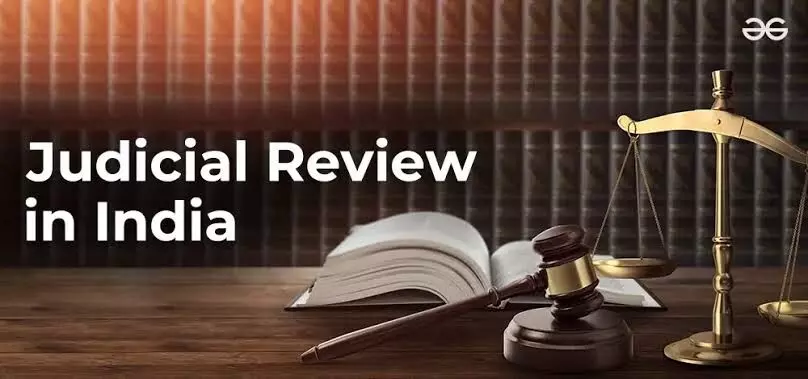Judicial Review vs. Legislative Authority: Can Parliament's Lawmaking Be Selectively Scrutinized

The balance between legislative power and judicial review is at the heart of the Waqf (Amendment) Act, 2025 hearing in the Supreme Court. While the judiciary must ensure that no law contradicts constitutional provisions, it must also respect the legislative process. The court has taken the position that it cannot interfere in the broad policy decisions of Parliament as long as they remain within the constitutional framework. However, it has agreed to hear arguments on three specific clauses that are being challenged. This approach raises serious questions about whether a law can be dissected for selective scrutiny or whether constitutional validity should be examined in a more holistic manner.
Kapil Sibal, representing the petitioners, has argued that the division of judicial review into separate clauses is an artificial and problematic approach. If a law contains unconstitutional elements, it should be reviewed in its entirety rather than isolating individual provisions. He contends that the structure of the amendment itself is problematic and that the disputed provisions affect the overall intent of the legislation. By focusing on three clauses and disregarding the rest, the court risks validating a law that may, in effect, undermine constitutional principles. His argument is that once a provision is deemed unconstitutional, its consequences reverberate across the entire statute, necessitating a broader judicial intervention.
The government, represented by Solicitor General Tushar Mehta, has defended the amendments as necessary to prevent the alleged misuse of Waqf provisions. It has taken a narrow approach by requesting the court to limit its intervention to the three flagged clauses. The government argues that the amendments were introduced with the intention of streamlining Waqf governance while addressing concerns over unauthorized land encroachments. By urging the court to confine its review, the government is attempting to safeguard the legislative independence of Parliament while simultaneously ensuring that only the contested clauses are debated.
The Supreme Court, while acknowledging Sibal's objections, has reiterated that laws enacted by Parliament enjoy a presumption of constitutionality. This presumption places the burden of proof on petitioners to demonstrate a clear and undeniable constitutional violation. The court has signaled that its approach will remain cautious and restrained, avoiding any sweeping declarations that might set a precedent for broad judicial interference in future legislative matters. This stance reflects an institutional reluctance to undermine the power of Parliament except in the most explicit cases of constitutional breach.
The underlying issue in this case is not merely the Waqf amendments themselves but the broader question of how judicial review should be exercised in cases involving complex legislative frameworks. Historically, the Supreme Court has intervened in situations where laws were considered fundamentally incompatible with constitutional values, striking them down entirely. However, in this instance, the court appears to be adopting a fragmented approach by evaluating only parts of the law. This shift raises concerns about whether future legal challenges will be similarly restricted, potentially allowing legislators to circumvent judicial scrutiny by compartmentalizing provisions within broader statutes.
The implications of this hearing extend beyond the immediate matter of Waqf governance. If the court upholds the three contested provisions without examining the broader bill, it may inadvertently set a precedent for selective judicial review. This could, in turn, lead to legislative maneuvering where controversial provisions are embedded within larger, legally sound frameworks to evade full judicial examination. On the other hand, if the court decides to expand the scope of review and analyze the bill as a whole, it may reinforce the principle that constitutional scrutiny must apply to an entire legislative act, rather than isolated portions.
At its core, the debate surrounding the Waqf (Amendment) Act is about the limits of judicial intervention and the boundaries of legislative authority. The Supreme Court's decision on how to proceed will not only shape the future of Waqf governance but also define the contours of judicial review in India. The tension between ensuring constitutional compliance and respecting parliamentary independence is evident, and the resolution of this case will have lasting consequences on the role of the judiciary in interpreting legislative actions. Whether the court ultimately chooses to expand its review or maintain a narrow focus, its ruling will set a benchmark for how similar cases are handled in the years to come.
